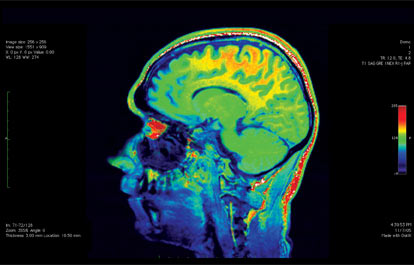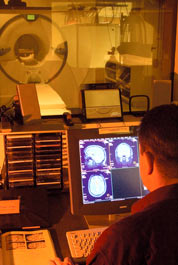

Scientific Lectures //
Neurocognitive and Neuroimaging Endophenotypes: Insights into the Genetics of Pyschotic Illnesses
David C. Glahn, Ph.D. - Associate Professor of Psychiatry and of Neurobiology, Yale School of Medicine
Director, Affective Disorders and Psychosis Trials, Olin Neuropsychiatry Research Center
Presented: May 21, 2012
ABSTRACT: Although several genome-wide significant loci have been localized for schizophrenia and bipolar disorder, these findings explain a fraction of the genetic variance predisposing these illnesses and have yet to result in true gene identifications. Furthermore, there have been no similar findings for the more common mental illnesses like depression and anxiety disorders. Yet, progress in elucidating the pathophysiology of mental illnesses is predicated on causal gene identification. Focusing on quantitative endophenotypes, traits that index genetic liability for an illness, rather than diagnoses alone, provides a complementary strategy for identifying risk genes. Quantitative endophenotypes established in family-based studies of clinical samples typically vary within the normal population, providing the opportunity to localize genes influencing these traits in unselected pedigrees. Such genes are then validated in case-control samples. This normal endophenotypic variation strategy has been successfully applied to identify disease-risk genes for heart disease, obesity, and diabetes and there is no a priori reason this strategy cannot be as profitable for mental illnesses. Here, I will discuss our recent work with applying neurocognitive, neuroimage and transcriptional endophenotypes in search of risk genes for affective and psychotic illnesses. Specifically, I will present work from the “Genetics of Brain Structure and Function” study, which involves acquisition of behavioral, neurocognitive and neuroimaging endophenotypes in 1500 Mexican Americans from randomly-selected extended pedigrees. All participants have high-density SNP arrays, transcriptional data from two time points and 502 individuals have 60-fold genome-wide sequence data. Our approach involves localizing loci for an endophenotype via genome-wide linkage or association, identifying the non-synonymous or regulatory variants diving that effect with sequence data, and then demonstrating pleiotropy with published association studies. Our results provide clear examples of how endophenotypes can provide novel genetic insights for mental illness.
To view presentation please click here.

